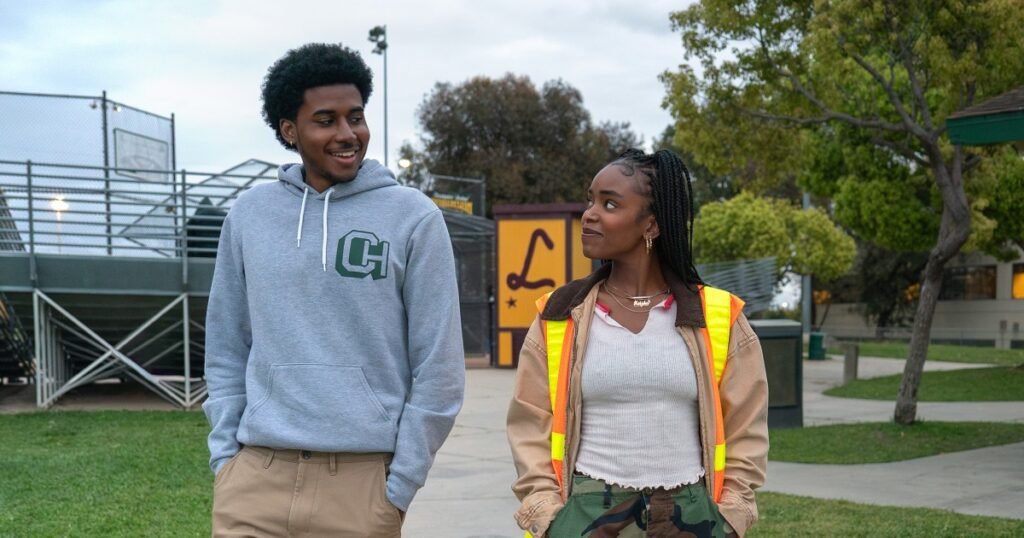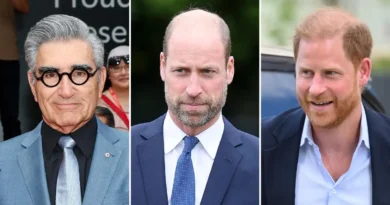
Do Keisha and Justin Remain a Couple?
Note: This article includes spoilers for “Forever.”
In the closing episodes of “Forever,” Netflix’s poignant teen romance, the exuberance of first love meets the harsh truths of adulthood.
This is precisely the message.
As Keisha (Lovie Simone) secures a full scholarship to Howard University and Justin (Michael Cooper Jr.) gains acceptance to Northwestern, their envisioned “forever” starts to crumble. United by a profound emotional bond and youthful vows, they must confront a stark reality: love alone may not suffice amidst personal aspirations, expectations, and self-discovery.
By Episode 8, the underlying issues become evident. “If you’re not willing to fight for us, then fight for Justin,” Keisha implores. This moment is pivotal. She challenges him to shift from merely revolving around their relationship to prioritizing himself. Justin hears her — and decides to leave. Their farewell is gentle, emotional, and filled with care. Yet, it signifies an ending.
Elizabeth Morris / Netflix
“Forever,” adapted from Judy Blume’s 1975 novel by creator Mara Brock Akil, modernizes the original’s emotional resonance for today’s audience. It doesn’t strive to paint a fantasy.
In discussions with TODAY.com, both Simone and Cooper shared that the story resonated personally for them.
“I had to embody Keisha,” Simone remarks. “The writing is remarkable. I appreciated her depth, even while she concealed so much.”
“Judy was a pioneer. Mara’s adaptation is timely and beautiful. Justin’s journey, as he navigates what’s best for him, deeply resonated with me,” Cooper adds.
Their love is not merely passionate; it serves as a pivotal part of their growth. The series poignantly explores themes of identity, vulnerability, and the bittersweet essence of young romance.
In Episode 7, Keisha’s father cautions her about Justin’s aimlessness—not out of judgment, but understanding. He recognizes his own past wanderings. Justin’s internal battle, between college and music, symbolizes the critical choices confronting every young adult.
As the series concludes, Keisha and Justin take a hiatus before coming back together, reasserting their love, only to ultimately part ways for good. Not out of anger or resentment, but necessity.
“He doesn’t leave because he stops caring for her,” Cooper explains. “He leaves because he needs to discover his identity. That’s what is most painful.”
Justin informs Keisha that he’s taking a job at CVS to fund music certification classes and has postponed his Northwestern admission to chase his dream. As Keisha prepares for Howard, she supports him — even through the heartbreak.
They meet one last time before her departure. Their farewell is filled with affection, hope, and a silent understanding: they might cross paths again — or they might not. And that’s acceptable.
“Anything that departs from you,” Keisha’s mother advises, “will be replaced with something equally good or better.” This shifts their breakup from a loss to a necessary chapter.

Elizabeth Morris / Netflix
Although titled “Forever,” the series doesn’t romanticize permanence. Instead, it portrays love as a vital experience—something that shapes us, challenges us, and sometimes fades away.
“At that age, everything feels magnified,” Simone observes. “Every decision seems like the most critical choice of your life.”
“Their romance felt like it had high stakes, as if the world would collapse if it didn’t succeed. But that’s just part of maturing,” Cooper notes.
That’s why the conclusion resonates—not out of sadness, but due to its honesty. “Forever” doesn’t assert that love is everlasting; it highlights how even a meaningful love can leave you enriched, even after it ends.



